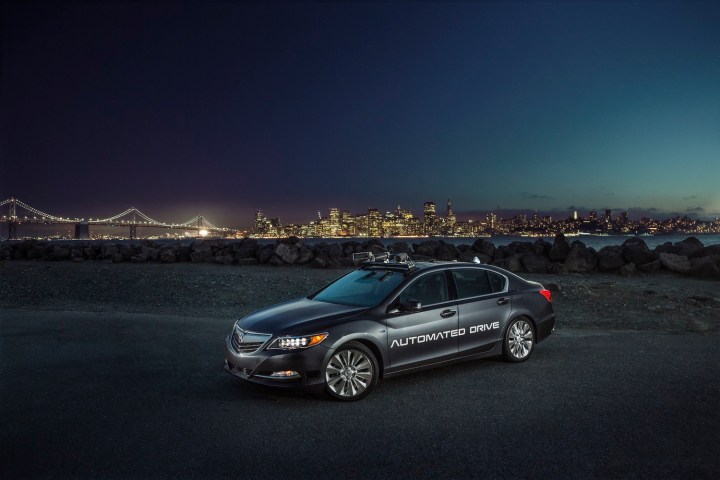
Of 618 respondents, about 46 percent said they preferred to retain full control of a vehicle, while about 39 percent said they prefer a partially self-driving car that requires only occasional assistance from a human driver. Less than 16 percent said their top choice would be to ride in a fully autonomous car.
About two thirds of the respondents said they were moderately or very concerned about riding in a fully autonomous car, and about half of respondents expressed the same level of concern over riding in cars that are partially autonomous. UMTRI researchers conducted a similar study last year, and say results for the 2016 study largely mirror the results from that one.
Read more: Google’s self-driving car has an algorithm for honking
“Overall public opinion has been remarkably consistent over the two years that this survey has been conducted, despite the increased media coverage of self-driving vehicles,” Brandon Schoettle, who, along with Michael Sivak, conducted both studies, said in a statement. Carmakers, the tech industry, and various analysts are pushing self-driving cars because of anticipated safety and efficiency benefits, and relief from the stress of commuting. They generally assume those benefits will be enough to get consumers onboard.
Respondents were also asked whether self-driving cars should have backup manual controls, and the overwhelming response was “yes.” There has been much discussion about the need for steering wheels and accelerator and brake pedals in self-driving cars, but 95 percent of respondents said they wanted them. The most popular method for inputting destinations was the touchscreen, with 38 percent of the vote, followed by voice command, with 36 percent.
The bridge between conventional cars and fully autonomous vehicles is partially autonomous cars that still require humans to take control in certain situations. Automakers are currently struggling with how to keep drivers from simply tuning out when going into autonomous mode. The UMTRI study showed that 59 percent of respondents preferred a combination of sound, vibration, and visual warnings to notify them, although that doesn’t necessarily mean those methods will be effective in getting a person’s attention in time.


